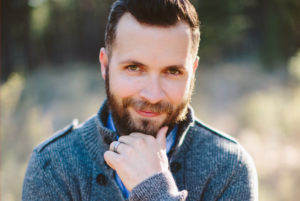I’ll be the first to admit it… There are people from my past who don’t like me. People who I care deeply for, yet our relationship has been fractured by a seemingly irreparable disagreement. However, I also have relationships with people who’ve allowed our hurtful disagreements to be transformed into healed acceptance.
Furthermore, I’m learning that when living in a culture in which offense and sensitivity are as common as air, a leader’s ability to prevent, manage, and restore relationships becomes their greatest currency.
Below, I have outlined three perspectives that have helped me turn pain into progress and passion into patience. They are not merely points I have written either, but practices I’ve used in moments of great cost to those involved.
1. Procrastinating An Apology Always Makes The Problem Worse
Recently, I wrote about the consequences procrastination can inflict upon a dream, or loved one, or career. But procrastination in the face of heated disagreement clashes with the age-old mantra “time heals all”. While time does bring further healing to a rectified relationship, time brings resentment to a wounded conversation between parties.
In my experience, an apology is an act of leadership. And however counter intuitive it may feel in the moment, I’ve learned that the hard thing is typically the right thing.
By initiating a sincere, humble, apology whether it’s received or not, you have effectively set the tone and stage for future restoration.
Even so, we must remember that changed behavior is the best apology. That being said, in the midst of your expression of regret, be sure to affirm your counterpart that your words have been and will be translated into better behavior in future exchanges.
2. Humility Feels Like Fire But Heals Like Water
A mentor once told me, “Dale, it’s very difficult to argue with a humble person.” Turning strife into strength requires a willingness to value the person above the topic of disagreement. Naturally, we self-preserve and if we’re not careful, we can default into a state of defensiveness (another topic I’ve written about).
In the Bible, sits a piece of scripture I have not only memorized but continue to submit to in times of contention. It reads, “Do nothing from selfish ambition or conceit, but in humility count others more significant than yourselves. Let each of you look not only to his own interests but also to the interests of others.”

In reality, God expects us to value other’s outcome above our own. We are to care more about the person than the problem and we are to lay aside our own selfish desires for the restoration of the relationship.
Lastly, pride is the enemy of love. Where pride wins, our efforts of repair lose. Remember, humility is leaving pride at the door—just be sure it doesn’t sneak onto your foot as you walk across the threshold.
3. We Can’t Control What Happens To Us, But We Can Control What Happens In Us.
Even our best efforts of reconciliation can leave us playing solo in a duet. Just last year, I reached out to a friendship that ended in a painful disagreement. The wounds were both deep and sensitive. Because this person lived in another state, I attempted to share my apology by phone. I remember sitting in my car praying for self-control, humility, and patience.
Despite my greatest efforts, our call ended with him hanging up on me. I felt defeated and helpless. But then, a friend reminded me “You can’t control what happens to you Dale, you can only control what happens in you.”
After embracing those words, I realized that progress had been made. The ball is now in his court. Forgiveness is something we get to ask for, not demand for. But taking control of how I felt from our conversation is what has helped me move on without a root of bitterness in my heart.
In closing, our reputation is priceless. It’s my belief that we must invest in the constant protection of our good name. But we must also be willing to put “being right” below “making things right”. A man or woman is only as strong as the perception others have about them. It’s my hope you can take these lessons and apply them to not just the people who matter but the enemies we so easily have forgotten.
This article has been republished with the permission of Dale Partridge – to see the original post please follow the link.

Dale Partridge is the Founder & CEO of StartupCamp.com. He’s also a keynote speaker and author of the Wall Street Journal & USA Today Bestselling book People Over Profit.
